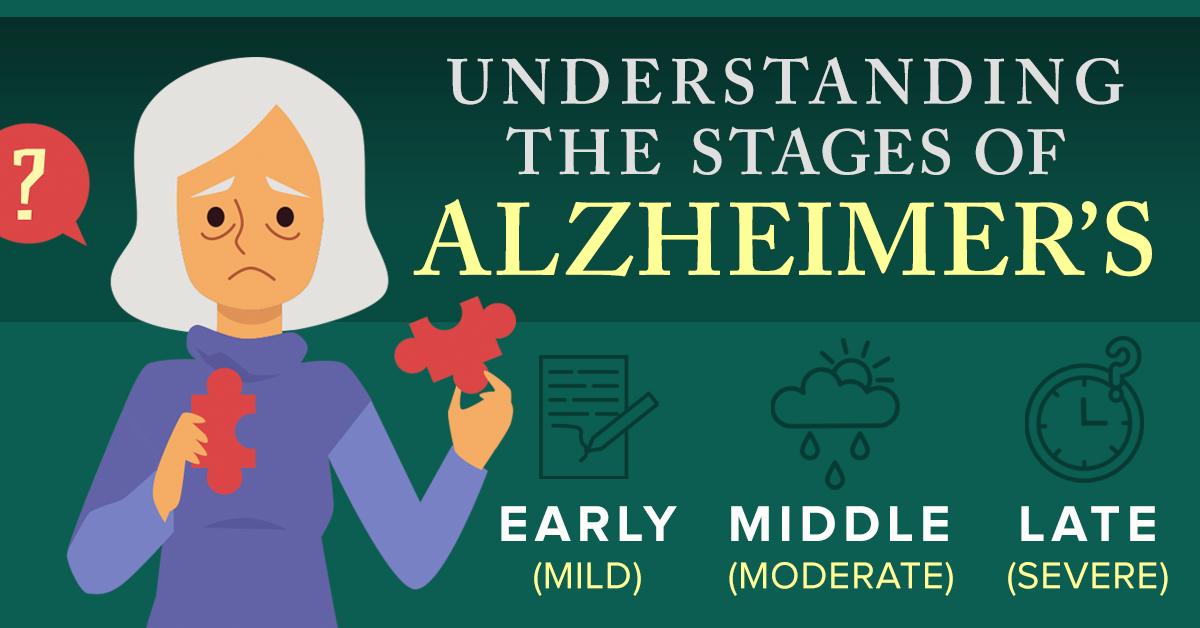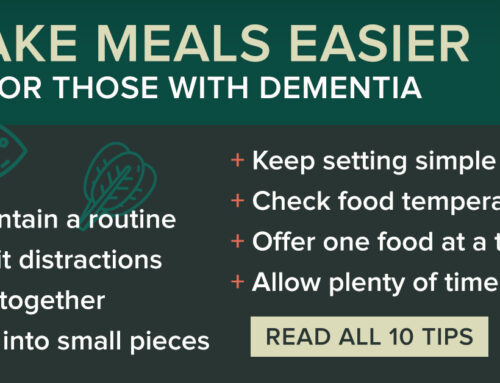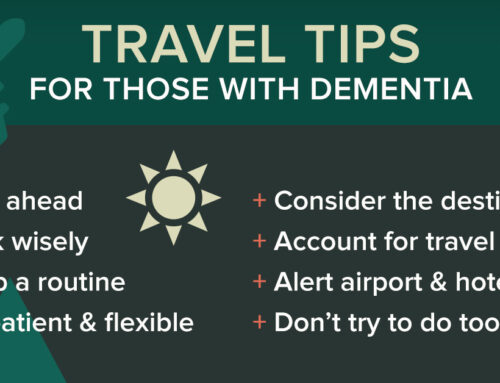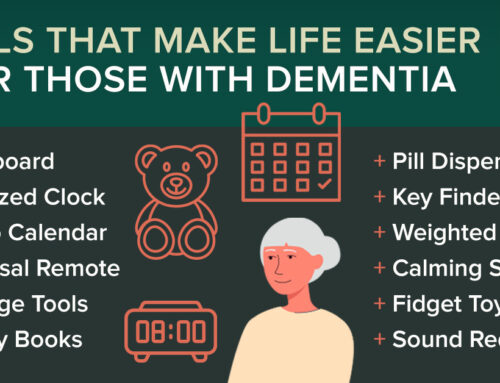Understanding the Stages of Alzheimer’s
Your aging loved one just received a devastating diagnosis… Alzheimer’s disease.
Now what?
“For those who have never cared for a family member or friend with the disease, it can be overwhelming,” said Sierra Goetz, co-founder and operations manager at the HomeCare Advocacy Network (HCAN). “When my stepmom was diagnosed with early onset Alzheimer’s, we had so many questions. However, since every case is different, we didn’t always get answers. With Alzheimer’s, there’s a lot of uncertainty – so many unknowns. It’s scary.”
Stages of Alzheimer’s Disease
Goetz said understanding the stages of the disease will help you provide better care for your loved one. According to the Alzheimer’s Association, the disease progress through three stages – mild, moderate and severe. Since Alzheimer’s affects different people in different ways, the symptoms or progress through the stages may vary.
Early stage (mild)
In the early stage of Alzheimer’s, a person may function independently – perhaps still driving, working and taking part in social activities. Symptoms may not be widely apparent at this stage, so they may attribute it to simple memory lapses, such as forgetting familiar words or the location of everyday objects.
Common difficulties include:
- Coming up with the right word or name
- Remembering names when introduced to new people
- Having difficulty performing tasks in social or work settings
- Forgetting material that was just read
- Losing or misplacing a valuable object
- Experiencing increased trouble with planning or organizing
Middle-stage (moderate)
Middle-stage Alzheimer’s is typically the longest stage – possibly lasting for many years. During the middle stage, the dementia symptoms are more pronounced – the person may confuse words, get frustrated or angry and act in unexpected ways. Damage to nerve cells in the brain can also make it difficult for the person to express thoughts and perform routine tasks without assistance.
Symptoms will vary from person to person, but they typically include:
- Being forgetful of events or personal history
- Feeling moody or withdrawn, especially in socially or mentally challenging situations
- Being unable to recall personal information, such as their address, phone number or where they went to school
- Experiencing confusion about where they are or what day it is
- Requiring help choosing proper clothing for the season or occasion
- Having trouble controlling their bladder and bowels
- Experiencing changes in sleep patterns, such as sleeping during the day and becoming restless at night
- Showing an increased tendency to wander and become lost
- Demonstrating personality and behavioral changes, including suspiciousness and delusions or compulsive, repetitive behavior
Late-stage (severe)
In the final stage of the disease, dementia symptoms are severe. Individuals lose the ability to respond to their environment, to carry on a conversation and, eventually, to control movement. Communicating pain becomes difficult and, as memory and cognitive skills worsen, significant personality changes may take place.
At this stage, individuals may:
- Require around-the-clock assistance with daily personal care
- Lose awareness of recent experiences as well as of their surroundings
- Experience changes in physical abilities, including walking, sitting and, eventually, swallowing
- Have difficulty communicating
- Become vulnerable to infections, especially pneumonia
Trained Help and Education Class
“Alzheimer’s is a brutal disease – one that puts a lot of stress on families, particularly when more care is required,” Goetz said. “At HCAN, we’re committed to helping families cope with the challenges that come with the disease. Our professional caregivers are trained to provide the care your loved one needs while giving family members much needed respite from day-to-day caregiving responsibilities.”
In addition to providing exceptional in-home care, HCAN also offers the Family and Friends Dementia Education class – a free, two-hour session designed to help family members and friends understand what to expect with dementia and how they can best care for their loved ones and themselves.
For more information about HCAN’s dementia care services or the Family and Friends Dementia Education class, visit hcanthrive.com or call 402.965.0737.






